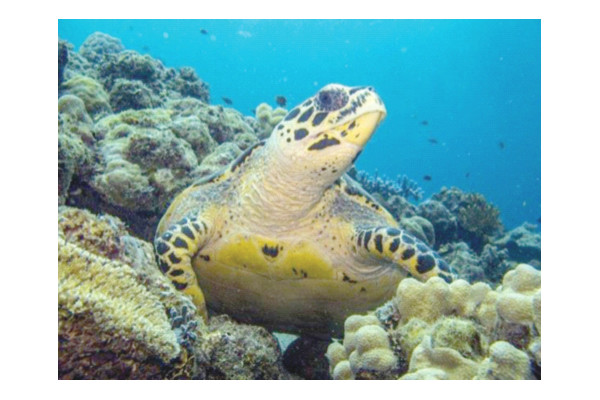Marine NGO, divers not happy
Published on: Saturday, May 25, 2019
By: FMT

Kota Kinabalu: A marine life conservation NGO and a divers’ group are unhappy with the outcome of a recent roundtable discussion led by the Sabah Wildlife Department on a turtle tagging method used at an island off Semporna.Marine conservation group Green Semporna and the Semporna Professional Divers Association (SPDA) had previously claimed researchers were using an unethical method of tagging turtles at Mabul Island, according to FMT.
ADVERTISEMENT
Green Semporna alleged that researchers from a university in Sabah had been using the method, which involved tying the animals’ front flippers and shooting them up to the surface at a rapid pace with a lift bag.
However, State Tourism, Culture and Environment Minister Christina Liew, in a statement, said while there was speculation linking the method to dying turtles at the island, the discussion found no evidence to back the claims.
The discussion involved scientists, the management of a resort and several NGOs.
“The scientists will make the appropriate changes to the method for the additional safety of the turtles. The public university will continue their successful collaboration with the resort in Mabul towards public awareness, education and conservation of the sea turtles in Mabul,” she said.
ADVERTISEMENT
She added that the major anthropological threats to sea turtles in Sabah, which are especially prevalent in Mabul, were identified as poaching, plastic pollution and boat strikes.
Green Semporna and SPDA welcomed the Minister’s assurance on changes to the method to capture the turtles but at the same time contended that Liew’s statement failed to address several critical issues.
ADVERTISEMENT
The roundtable discussion at the Sabah Wildlife Department office recently.
Green Semporna co-founder Adzmin Fatta said, among others, the statement failed to touch on whether the previous method caused decompression sickness (DCS) or side effects on the turtles.
“Secondly, there is no explanation regarding the involvement of the public, particularly tourist volunteers, in the tagging of the turtles for research previously – whether it is against the SOP or regulations on the protection of these animals,” he said.
The fact that Liew had said the public university would continue its collaboration with the Mabul resort on public awareness, education and conservation projects meant the turtle tagging process would still involve the public, he added.
He reiterated that only trained hands such as experts and authorised personnel be allowed to handle turtles, adding the animals were protected in Sabah under Schedule 1 of the Wildlife Conservation Enactment 1997.
Adzmin said the connection between dead turtles found at Mabul and the ropes found with the carcasses was also not explained.
“I believe such discussions should be more inclusive and transparent,” he said, adding that Green Semporna had not been invited for the meeting.
“I hope they (authorities) will consider an independent supervisor to monitor the tagging research process. Let’s not wait until there are dead turtles and only then local NGOs are requested to help in the probe.”
Besides Green Semporna, SPDA was also surprised to have been left out from the discussion. Its president Abdul Razak Ismail said they were among the few groups which had spoken out about the issue.
In any case, he said, it was clear that the lift bag method had been used earlier but that there was not even a mention of whether it had had an adverse effect on the turtles when many research papers had shown turtles were capable of getting DCS.
He claimed the previous method had also undone the work by conservationists and turtle lovers, such as divers, in getting the turtles to be friendly with visitors.
“The turtles are a tourist attraction but the university researchers took advantage of that trust and carried out the tagging method,” he said.
Razak said there had been fewer sightings of turtles at the island over the years.
In her statement, Liew said the Mabul sea turtle project which commenced in 2013 had recorded over 1,000 turtle captures until 2019, many of which were repeat captures from which growth, health and genetic data had been obtained.
Each turtle that is caught is tagged to give it a unique identification number for long-term monitoring.Stay up-to-date by following Daily Express’s Telegram channel.
Daily Express Malaysia




